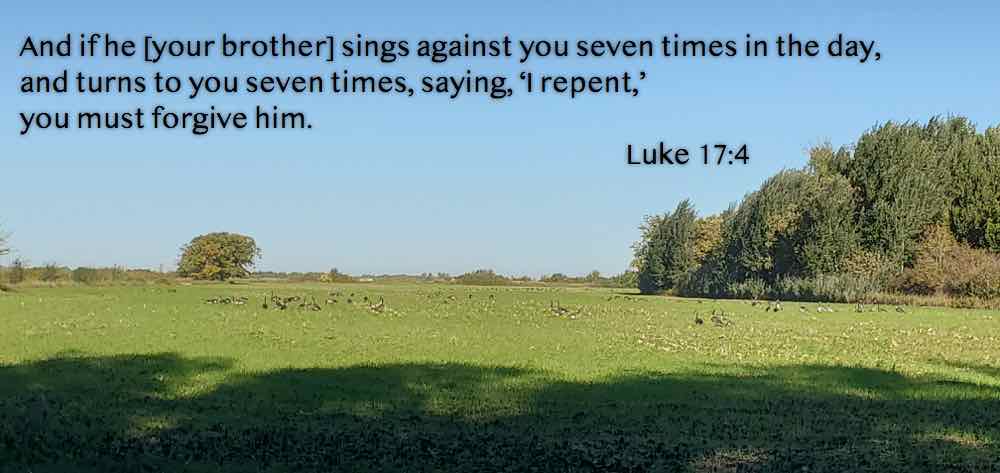October 5, 2025

Luke 17:1–4 ESV
And he said to his disciples, “Temptations to sin are sure to come, but woe to the one through whom they come! It would be better for him if a millstone were hung around his neck and he were cast into the sea than that he should cause one of these little ones to sin. Pay attention to yourselves! If your brother sins, rebuke him, and if he repents, forgive him, and if he sins against you seven times in the day, and turns to you seven times, saying, ‘I repent,’ you must forgive him.”
Discussion Questions:
In our next two studies Jesus is giving a balanced view of discipleship by contrasting perspectives. He is giving us each side of the same coin.
In this first example, Jesus is discussing problems that will arise among disciples (brethren). In verses 1-3a he presents how we should view problems amongst the brethren if we are the cause. And in verses 3b–4 he presents how we should view problems amongst the brethren if we are on the receiving end.
1) (Verses 1-3a):
- What offences are being spoken of?
- What is the millstone hanged about one’s neck and thrown into the midst of the sea describing?
2) (Verses 3b-4):
- What is the proper type of rebuke?
- How do we forgive?
Discussion Summary:
Jesus is speaking for his disciples’ future benefit when he will be gone and unable to solve their disputes. He had just given them a number of parables illustrating the hard-heartedness of the religious leaders who were not merciful to the poor and sinners. This series of verses is designed to teach his disciples how wrong it is to be the one “offending” and how forgiving one should be when they are “offended.”
In verses 1-3 the word “offenses” means a trap, snare or stumbling block that causes someone to fall. It specifically applies to those new in the way of Christ (Ephesians 4:14). An example of this behavior is found in 2 Timothy 2:16-18 where it speaks of Hymenaeus and Philetus who are “upsetting the faith of some.” These offenses can be doctrinal, or offenses against one’s conscience (1 Corinthians 8:9).
The millstone was a small stone wheel that was used to grind wheat into flour. It is an exaggerated, over the top way to put someone to death. It reflects the severity with which God views hurting one of his little ones (Proverbs 6:19).
In verses 3 and 4, the lesson of forgiveness is taken from Leviticus 19:17,18 where it says that when one loves one’s neighbour as themselves they “reason frankly with them.” Ephesians 4:32 and Colossians 3:12,13 reiterate the gentle, kind way Christians are to deal with each other. For more serious and complex offenses there are also steps outlined by our Lord in Matthew 18:15-18 that can be used to restore harmony between brethren.
Leave a Reply